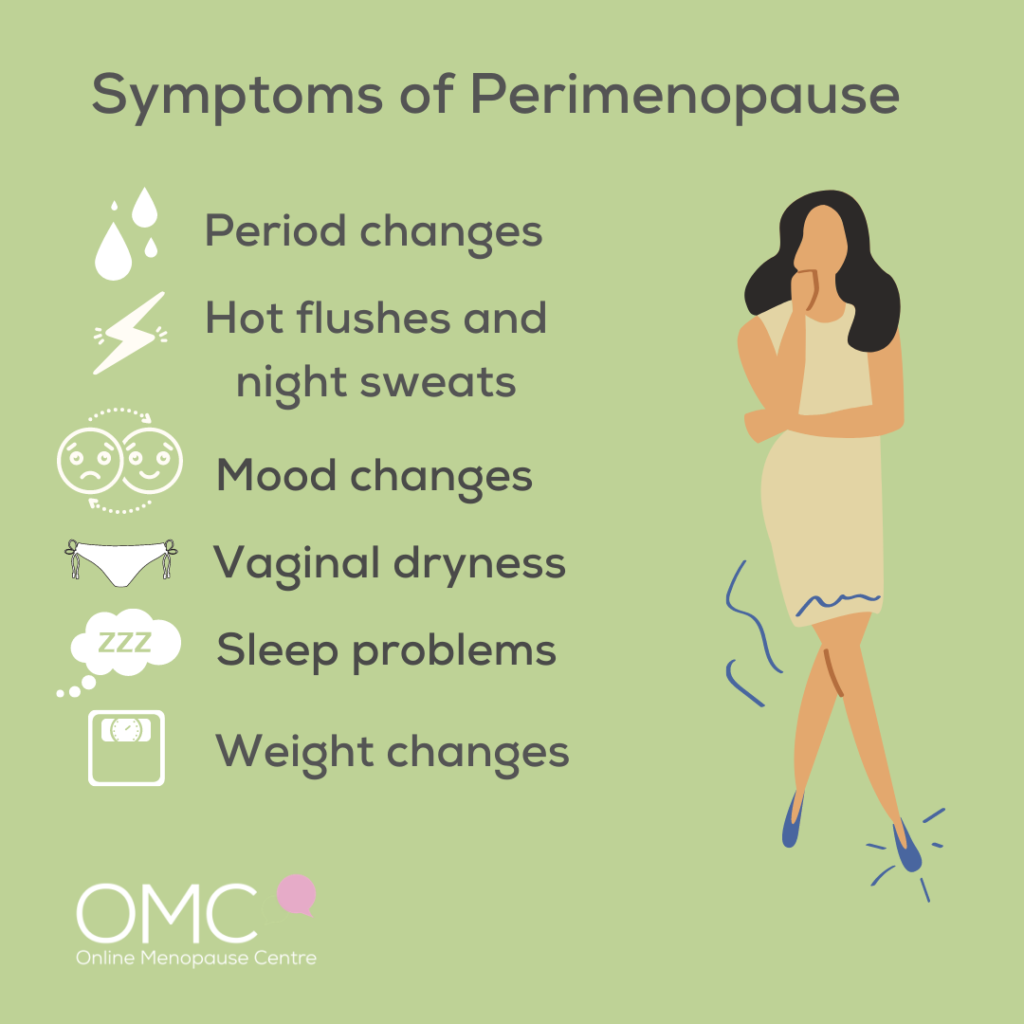Peri-menopause
What is Perimenopause?
Peri-menopause literally means “around” the menopause. Perimenopause symptoms can start a few months before a woman becomes menopausal to as far back as 8 to 10 years prior to her menopause. Women start experiencing mild to moderate signs and symptoms of hormonal imbalances years before they reach their menopause. One of the very first perimenopause symptoms women start noticing are changes to their sleep pattern and mood which could be transient or more persistent. As this time of life usually coincides with increasing professional, family and social responsibilities the link between the emergence of these symptoms and existence of a hormonal imbalance is often missed.
Symptoms of Peri-menopause
Perimenopause symptoms can begin from any time in our late 30s when we can have anovulatory menstrual cycles. This means that we do not ovulate every time we have a period. This can result in reduced progesterone levels. Since this is the hormone which helps regulate emotions and also helps with maintenance of sleep, these symptoms can begin.
Sleep is vital to our health and wellbeing. If we haven’t had a good night sleep, we often feel irritable and easily overwhelmed during the day. Hormonal imbalances can have a negative effect on our stress management and production of other hormones like thyroid hormone.
Perimenopause symptoms can include sleep disturbance, mood changes like increasing anxiety, low mood or depression, irritability, achiness in joints and muscles and water retention and breast tenderness.

Treatment of Peri-menopause
Fluctuations in progesterone and estrogen are at their peak during peri-menopause. This can make you more prone to becoming insulin resistant. This can in turn affect blood glucose (blood sugar). These changes can create a predisposition to weight gain, particularly around the waist area, fatigue and difficulty concentrating. On the other hand, the liver has a crucial role in supporting oestrogen metabolism and therefore healthy estrogen levels in the body. This is of particular importance in peri-menopause as progesterone levels start declining quicker than estrogen making you more naturally prone to an estrogen/progesterone imbalance.
It may be useful to check the hormonal levels at this stage. Although there can be a significant variation in quantities of hormones a woman produces from month to month but we will get an idea of her hormone production. If clinically indicated, hormonal balance can be achieved with hormone replacement treatment. To find out more please read our Hormones Replacement Therapy (HRT) page .
Nutrition & Lifestyle recommendations for
Peri-menopause
Nutritional recommendations
The best foods to support healthy blood sugar levels during peri-menopause include:
- Complex carbohydrates – brown/wild rice, lentils, amaranth, quinoa, oats, and wholemeal sourdough bread
- Sources of protein – organic eggs, wild fish, organic lean meat and poultry, beans/legumes, nuts/seeds, as well as fibre, with every meal
- Avoiding refined carbohydrates – sugar such as white pasta, white rice, white bread, pastries, sugary cereals and biscuits
The best foods to support your liver function include:
- Broccoli, cauliflower, brussels sprouts, kale, brazil nuts, artichokes and garlic
- Fibre-rich foods such as such as rolled oats, ground flaxseeds, chia seeds, green leafy vegetables, grains and almonds
- Turmeric and green tea
- Plenty of water to support detoxification


Lifestyle recommendations
If there was only one piece of advice for peri-menopausal women, it would be to start listening to their bodies and dedicating time to self-care. Every deep breath, yoga class and minute of meditation count.
It will help you to manage anxiety and reduce sleepless nights, two typical early symptoms of peri-menopause caused by the quick decline in progesterone, the “relaxing hormone”. One of the key aspects of self-care is that it is crucial for healthy cortisol levels, also known as the “stress hormone”.
- Breathe! – short breathing exercises such as “Breathing Space” and “Pranayama” before or during potential stressful situations
- Meditation – start the day with a short meditation to set the tone for the day (10 minutes is ideal but even minute counts if that is all you can do)
- Practice yoga – yoga engages the body, the breath and the mind, bringing a sense of calmness and connection with the body
